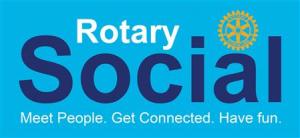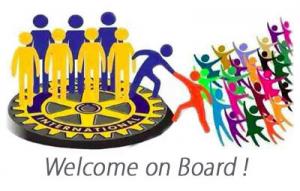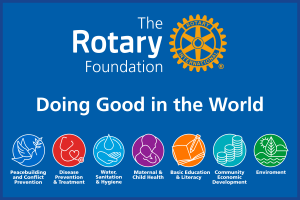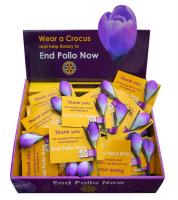club meeting - BLOOD BIKES
Wed, Jul 16th 2025 at 6:00 pm - 7:30 pm
Speaker - Andrew Robinson showed a promotional video produced by the National Association of Blood Bikes explaining all about Blood Bikes.
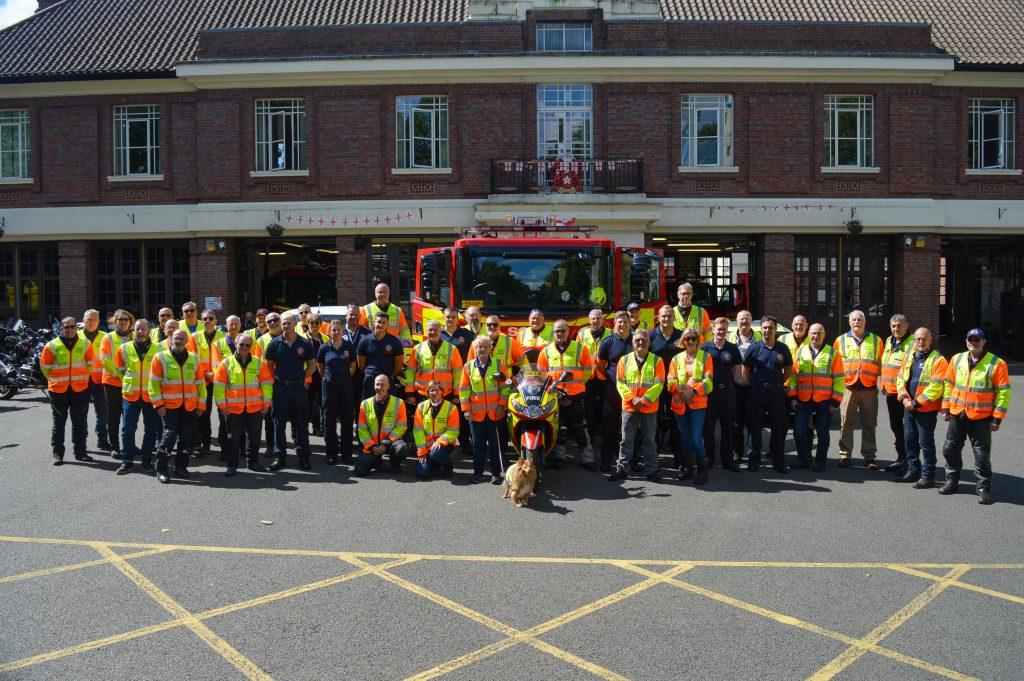
Speaker: Andrew Robinson, Blood Bikes Update.
Jack was given the honour of modelling the latest issue hi-viz jacket as he was the only member present who had ridden a bike and given blood. In order to be able to ride a Blood Bike or drive a car/van you have to hold a valid advanced driver/rider licence.
Andrew showed us a promotional video produced by the National Association of Blood Bikes explaining all about Blood Bikes.
All those in the process are volunteers, from the controller, who schedules the jobs/allocates to the riders/drivers, to those who carry out the transfers. Andrew told us ‘it is a humbling experience’. Blood Bikes supports the NHS by providing a transport service for nights, weekends and Bank Holidays. Hospitals generally do not have enough resources to cover these duties. Leicestershire was one of the last areas to join the association, in 2014, becoming a registered charity in 2016. The service has won the Queen’s Award for Voluntary Service in 2021. Andrew told us the local service has 80 active volunteers and 30 of those are advanced bike riders. In 2024 they responded to over 3000 calls and covered just over 42000 miles. Between 2016 and 2024 they responded to 14228 calls and covered 211044 miles. The National Blood Bike Association estimates savings for the health service are around £1.5 million.
Leicestershire and Rutland Blood Bikes carry blood, blood products, human milk, maternity notes, pharmaceuticals and surgical equipment, for example. The service is free of charge and saves the NHS a lot of money. The transport of blood and milk cost the NHS £350,000 in taxis during ‘out of hours’ in Leicestershire - hospital blood services finishes at 7pm.
The annual running costs are £50,000 and the charity currently has reserves in the bank. Funds generally come from public and private donations, fundraising, local businesses, corporate sponsorship and supermarkets (particularly around Christmas). A worn out motor bike is used for fundraising as a visual aid. The service covers Leicestershire and Rutland and trips are taken to Barnsley (regional blood bank) and Sheffield Childrens Hospital; the local Blood Bike service also takes part in relay runs, with other bike groups, where items are taken from, for example, London to Scotland. Andrew told us they have travelled £250000 miles - 50000 for vans and 200000 for bikes. The service now has a car as part of the vehicle ‘fleet’. Daily trips are taken to East Midlands Airport for items to be taken by the Air Ambulance to Sheffield, for instance. Waste blood - not arrived at the helicopter or venue on time is disposed of in a safe specialist way.
Nationally there are 35 groups with 4810 members. The cost of a local trip is £25. Andrew said, in his experience, there was a call-out on every shift. The local service has three bikes (900ccTriumph Tigers) that, with kit etc included, cost around £25000 in year one. The van (mainly used for fundraising) was purchased at a discounted price and a vehicle hire company has given them a Skoda Superb for the service.
How can we help? Volunteers are always needed for controllers, fundraising, riders and drivers, along with donations for support. Controllers are very important people and need superb organising abilities to maximise trips. More drivers are particularly needed but must be advanced drivers. Ideally it would be good to have enough volunteers to do one shift a month but at the moment it can be as many as one a week.
Blue lighting is a contentious subject. Currently only ambulance, police, fire and coastguard are those only authorised. Blood Bikes can have blue lights but are not exempt from speeding and moving through red traffic lights. The decision has been taken for our local Blood Bikes not to have blue lights - imagine making your way through queues only to have to stop at a red traffic light……Speeds of bikes are monitored and if anyone speeds regularly they may be disallowed to take part. There has been one rider death to date, since inception. Andrew has been involved with the Blood Bike service since around 2014 but he cannot now ride a bike as his advanced rider qualification has expired; his advanced driver status is still current. His duties now are as ambassador for the charity. All are insured but not for blue lights. It is not possible to get insurance to do blood runs on a personally owned bike. Bikes are currently kept by the fire service but the charity would like to have its own premises. All volunteers work from home and bikes are collected prior to a shift and dropped off after. The bikes only have seating for one with the posterior seat position replaced by a frame for the carriage of kit. The Leicestershire group is lucky to have good sponsors. Petrol costs around £3000 a year. It would be good to have a rolling replacement programme for the bikes at around 75000 miles usage. Service and repair is carried out at cost by a local garage.
.jpg)
